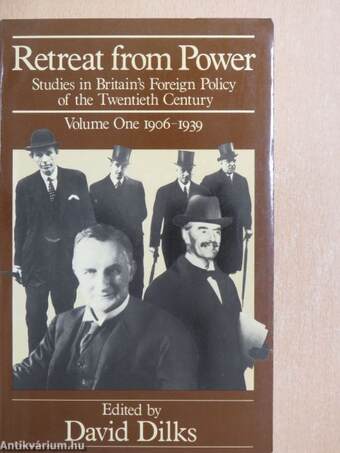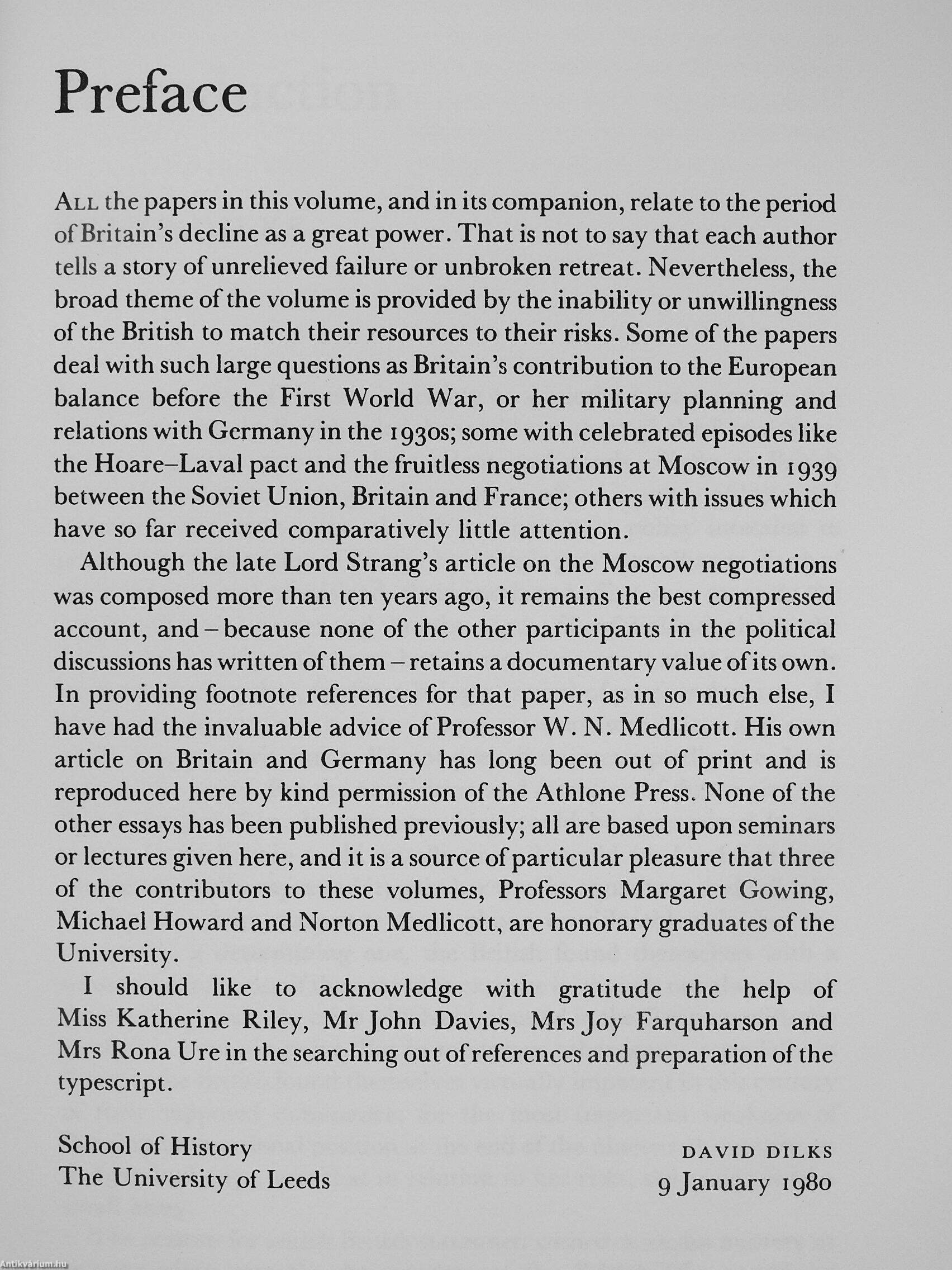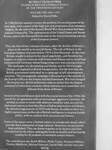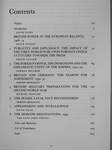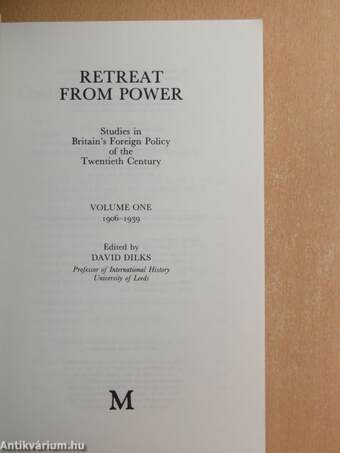1.068.007
kiadvánnyal nyújtjuk Magyarország legnagyobb antikvár könyv-kínálatát

VISSZA
A TETEJÉRE
JAVASLATOKÉszre-
vételek
Retreat From Power 1.
Studies in Britain's Foreign Policy of the Twentieth Century/1906-1939
| Kiadó: | The Macmillan Press Ltd |
|---|---|
| Kiadás helye: | London |
| Kiadás éve: | |
| Kötés típusa: | Ragasztott papírkötés |
| Oldalszám: | 213 oldal |
| Sorozatcím: | |
| Kötetszám: | |
| Nyelv: | Angol |
| Méret: | 21 cm x 14 cm |
| ISBN: | 0-333-28910-2 |
| Megjegyzés: | További kapcsolódó személyek a könyvben. |
naponta értesítjük a beérkező friss
kiadványokról
naponta értesítjük a beérkező friss
kiadványokról
Előszó
TovábbFülszöveg
RETREAT FROM POWER STUDIES IN BRITAIN'S FOREIGN POLICY OF THE TWENTIETH CENTURY
VOLUME ONE 1906-1939 Edited by David Diiics
In 1900 Britain seemed to enjoy the position of a world power of the first rank, with control of the high seas and possession of an extensive Empire. By the end of the Second World War that position had been reduced irreparably. The superpowers of the United States and Soviet Russia came to the fore and Britain was on the way to becoming just one of thé European powers.
This, the first of two volumes of essays, takes the decline of Britain's
place in the world as its overall theme. The role of Britain in the European balance of power before 1914 is first discussed. At this time
Britain sought to preserve her naval superiority, and therefore her Empire; to improve relations with France and Russia and to avoid bad relations with Germany whose burgeoning navy was causing concern. The onslaught of a devastating and bloody war in 1914 brought changes of... Tovább
Fülszöveg
RETREAT FROM POWER STUDIES IN BRITAIN'S FOREIGN POLICY OF THE TWENTIETH CENTURY
VOLUME ONE 1906-1939 Edited by David Diiics
In 1900 Britain seemed to enjoy the position of a world power of the first rank, with control of the high seas and possession of an extensive Empire. By the end of the Second World War that position had been reduced irreparably. The superpowers of the United States and Soviet Russia came to the fore and Britain was on the way to becoming just one of thé European powers.
This, the first of two volumes of essays, takes the decline of Britain's
place in the world as its overall theme. The role of Britain in the European balance of power before 1914 is first discussed. At this time
Britain sought to preserve her naval superiority, and therefore her Empire; to improve relations with France and Russia and to avoid bad relations with Germany whose burgeoning navy was causing concern. The onslaught of a devastating and bloody war in 1914 brought changes of emphasis in British foreign policy. For the first time the British government embarked on a campaign of self advertisement overseas. This propaganda campaign is discussed as is the attitude of the Foreign Office to the Empire and the Dominions. War had changed
the Empire too. British politicians came to realise that the Empire consisted of individual countries whose interests were sometimes very different from those of Britain.
Several of the contributors deal with the crucial events of the 1930s: the search for an agreement with an increasingly aggressive Germany, the
attempt to come to terms with defensive needs by land, sea and air, diplomatic moves to limit the effects of Italian intervention in Ethiopia, the abortive negotiations of 1939 with Russia. In addition there is a highly topical essay on the role of British intelligence in shaping foreign policy, with an analysis of its successes and failures.
Some of the essays cover a limited subject in considerable detail, others provide short summaries of large subjects. Most have not previously
been published. They are drawn together in an incisive and clear introduction by the editor, making this book invaluable and fascinating reading for all students of tvventieth-century history.
The contributors are: Keith Wilson, Philip Taylor, Norman Hillmer, Norton Medlicott, Michael Howard, David Dilks and the late Lord
Strang. Vissza
Témakörök
- Idegennyelv > Idegennyelvű könyvek > Angol > Történelem > Európa története > Egyéb
- Történelem > Idegennyelvű > Angol
- Történelem > Politika > Külpolitika > Diplomácia
- Történelem > Legújabb kor > Egyéb
- Történelem > Kontinensek szerint > Európa, európai országok története > Nyugat-Európa > Anglia
- Történelem > Hadtörténet > Hadügy, hadviselés
- Történelem > Tanulmányok



